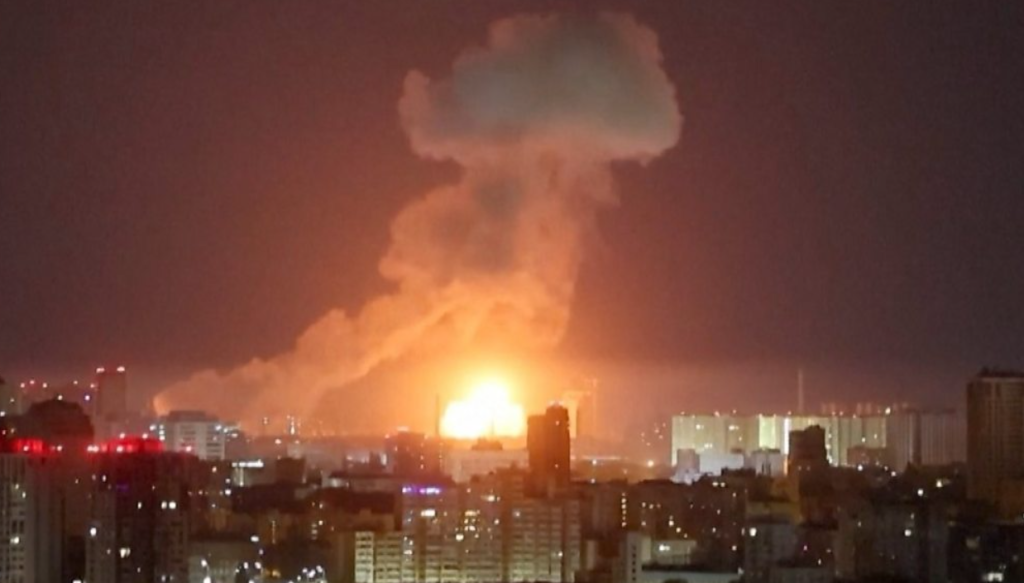
Russian Missiles Slam Into Kyiv, Massive Fires Engulf Ukrainian Capital

Russian missiles hit Kyiv in one of the most devastating attacks on the Ukrainian capital in recent weeks. The strikes triggered massive fires, destroyed key infrastructure, and caused multiple civilian casualties, drawing strong condemnation from the international community.
Coordinated Nighttime Assault on the Capital
The assault began in the early hours, with a barrage of ballistic and cruise missiles targeting several residential and strategic areas of Kyiv. Explosions rocked the city as fireballs lit up the night sky. Some missiles were intercepted by Ukraine’s air defense systems, but several broke through, striking apartment blocks and public infrastructure.
Emergency responders battled raging fires for hours, with thick black smoke blanketing large sections of the city. The sound of sirens and panic filled the streets as residents rushed to underground shelters.
Civilian Death Toll and Infrastructure Collapse
At least 12 people were confirmed dead, and over 40 were injured—many of them civilians caught off guard as they slept. Hospitals quickly reached capacity, while rescue teams continued combing through the debris for survivors.
The missile strikes also damaged critical infrastructure, cutting power and water supplies to thousands. Public transport systems ground to a halt, and widespread evacuations were carried out in the most affected neighborhoods.
International Condemnation and Global Response
The news that Russian missiles hit Kyiv quickly sparked international outrage. Western leaders called the attack “barbaric” and a clear violation of international humanitarian law. NATO and the European Union have scheduled emergency talks, with increased military aid to Ukraine likely to follow.
Ukrainian President Volodymyr Zelenskyy described the attack as “state-sponsored terrorism,” demanding stronger air defense support and renewed sanctions on Russia.
Rising Tensions and Humanitarian Concerns
This attack marks a dangerous escalation in the Russia-Ukraine conflict, which has now stretched into its third year. With civilian areas increasingly targeted, humanitarian conditions are deteriorating rapidly. Calls for a no-fly zone above major Ukrainian cities are growing louder as Kyiv reels from the devastation.
As the global spotlight returns to the Ukrainian front, the consequences of this latest assault may reshape international policy and further isolate Russia on the world stage.